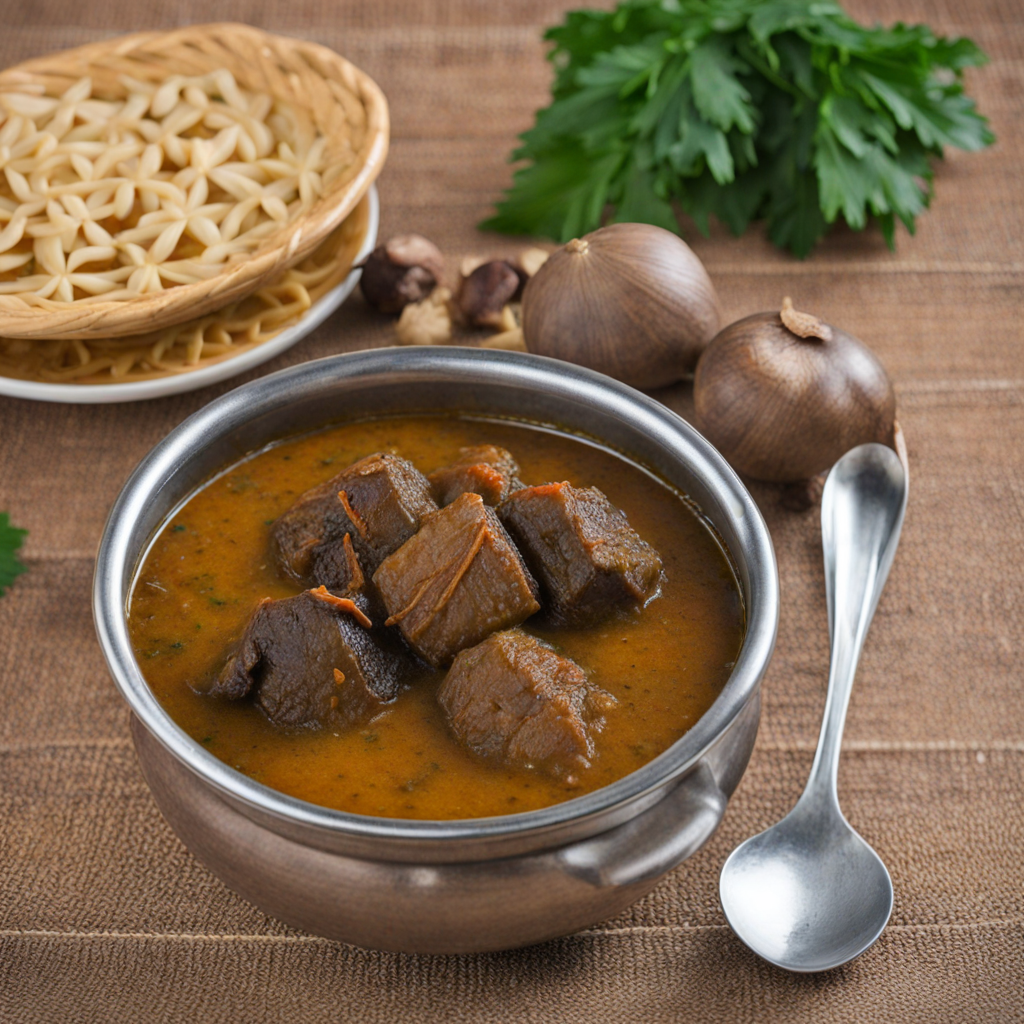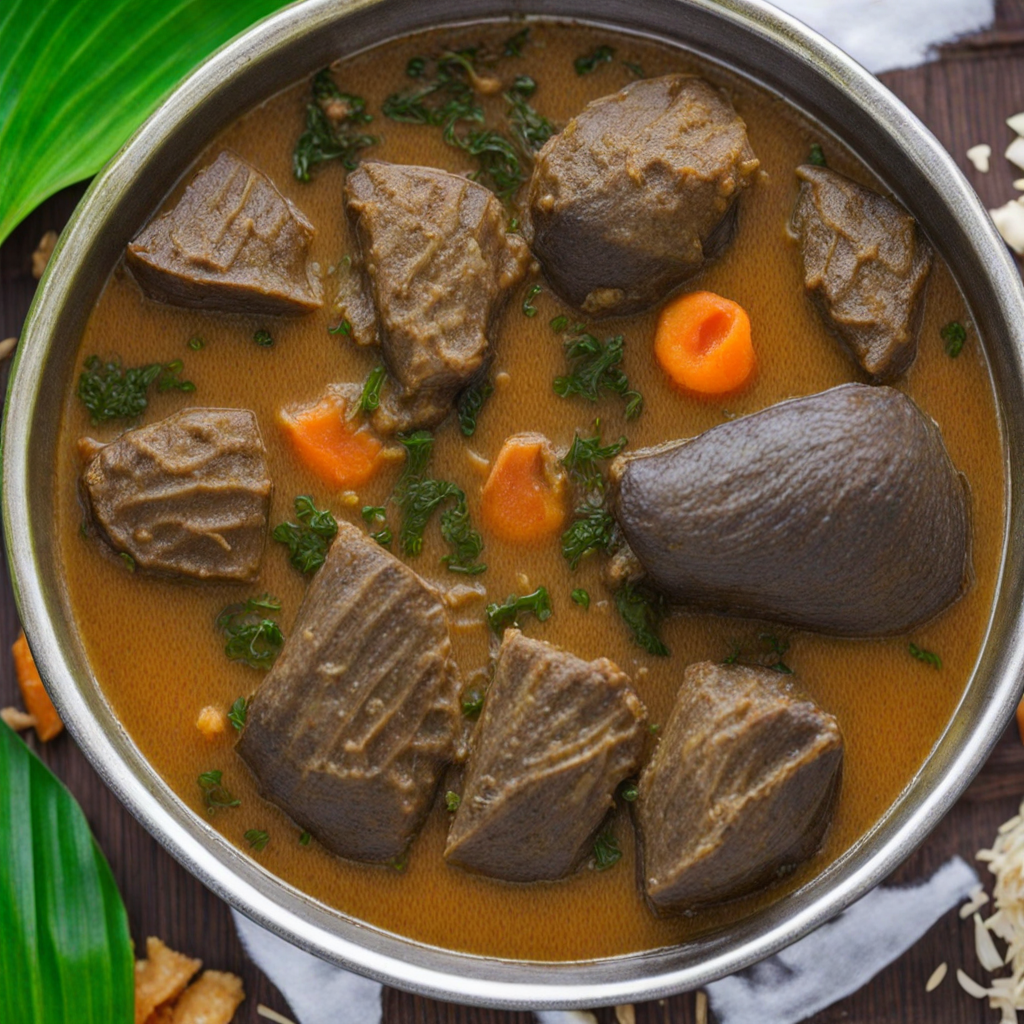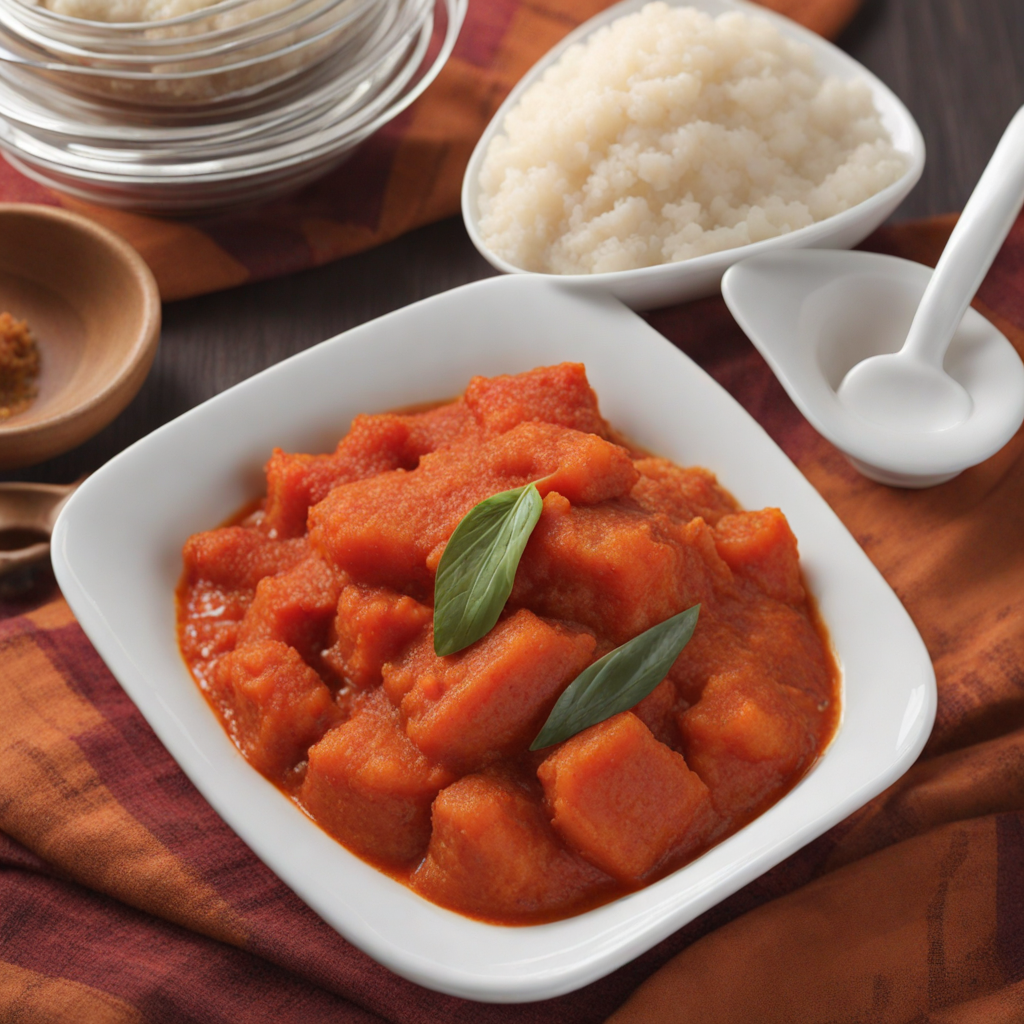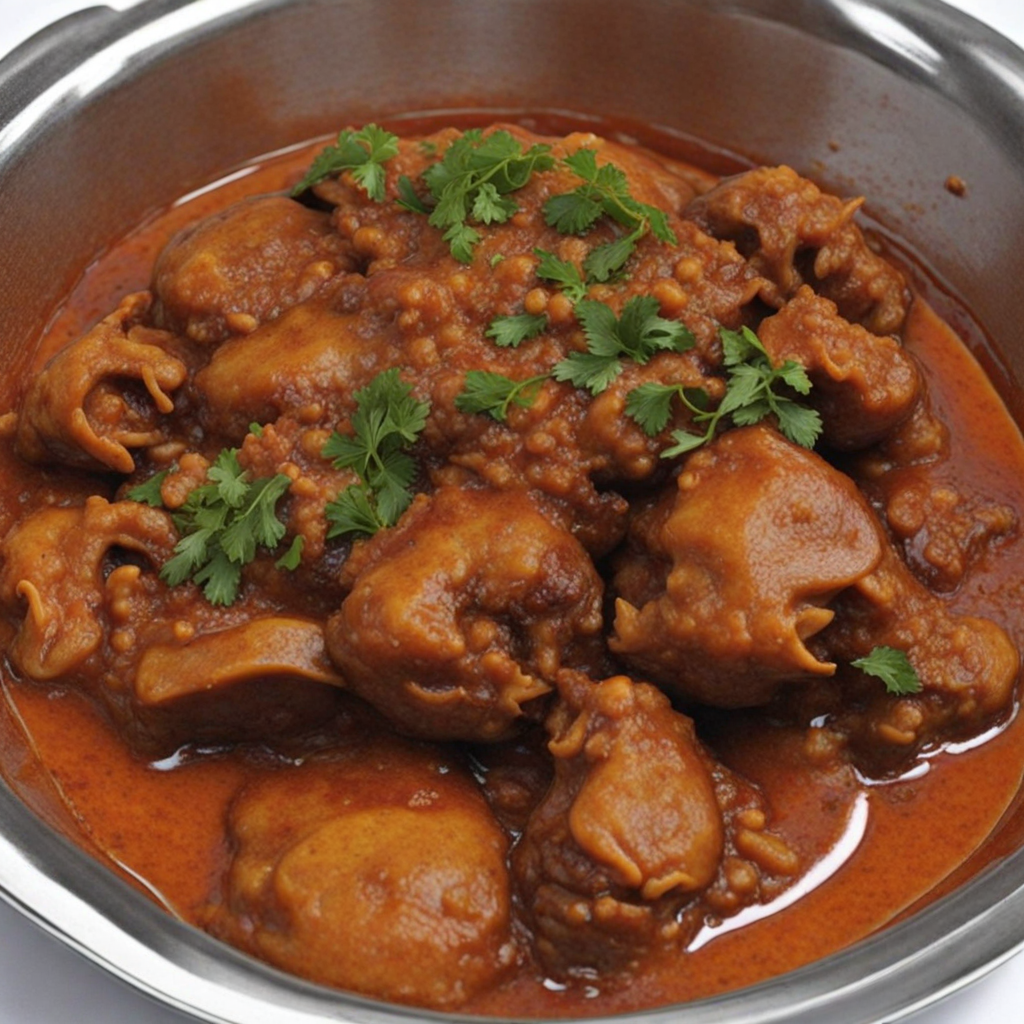Banga Soup
Banga Soup is a rich and flavorful dish that hails from the southern region of Nigeria, particularly the Delta State, where it is a staple among the Urhobo people. The soup is primarily made from palm nut extract, which gives it a distinctive reddish-orange hue and a unique, creamy texture. This base is complemented by a variety of ingredients, including assorted meats such as goat, beef, or fish, and can also include local spices and herbs like scent leaves, which add an aromatic complexity to the dish. The result is a hearty soup that is both indulgent and satisfying, making it a favorite for gatherings and special occasions. What sets Banga Soup apart is its depth of flavor, achieved through the slow cooking of the palm nut extract and the careful layering of spices. The dish is often seasoned with traditional spices like ground crayfish, pepper, and sometimes the unique 'Banga spices'—a blend of local spices that can include nutmeg and other native flavorings. This combination creates a warm, spicy profile that dances on the palate, making each bite an exciting experience. The soup has a slightly oily consistency, which enhances its richness and makes it perfect for soaking up with a side of starch like pounded yam or fufu. Banga Soup is not just a meal; it’s a cultural experience. It is often served during festive occasions or family gatherings, where people come together to enjoy the communal aspect of eating. The soup can be customized with various proteins, allowing for personal touches that cater to individual preferences. For those looking to explore Nigerian cuisine, Banga Soup offers a delightful introduction to the country’s rich culinary heritage, showcasing the use of local ingredients and traditional cooking methods that are both timeless and cherished.
How It Became This Dish
The History of Ofe Akwu: A Culinary Gem from Nigeria #### Origins Ofe Akwu, a vibrant and hearty dish, hails from the southeastern region of Nigeria, primarily associated with the Igbo ethnic group. Its name translates to "jollof soup" or "stew," with "Ofe" meaning soup or stew in the Igbo language and "Akwu" meaning palm oil. This dish encapsulates the essence of Igbo culinary tradition, utilizing locally sourced ingredients that speak to the culture and environment of the region. Historically, the use of palm oil in West African cooking dates back centuries, with its origins traced to the oil palm tree (Elaeis guineensis), which is indigenous to West Africa. The cultivation of oil palm trees and the production of palm oil became integral to the economy and diet of the Igbo people. Ofe Akwu is a celebration of this staple, showcasing the richness of palm oil as not just a cooking ingredient, but also as a symbol of prosperity and life. #### Ingredients and Preparation At its core, Ofe Akwu is made with a base of palm oil, tomatoes, and a variety of spices, with the addition of meat (often goat, chicken, or fish), and sometimes vegetables. The dish is typically served with rice, which absorbs the rich flavors of the stew. The preparation of Ofe Akwu is an art form that has been passed down through generations, with each family often having its own unique twist on the recipe. The process begins with the sautéing of onions and tomatoes in palm oil, creating a fragrant base. Spices such as ground crayfish, pepper, and sometimes locust beans (iru) are added for depth of flavor. The meat is then introduced, allowing it to simmer and absorb the spices, before serving it alongside rice. #### Cultural Significance Ofe Akwu is more than just a meal; it is a dish that embodies the communal spirit of the Igbo people. Traditionally, it is often prepared for special occasions, celebrations, and gatherings, such as weddings, festivals, and family reunions. The preparation of Ofe Akwu can be a communal activity, with family members coming together to cook and share stories, reinforcing familial bonds and cultural identity. The dish also plays a significant role in religious and cultural rites. For instance, during the New Yam Festival, a celebration of the harvest, Ofe Akwu is often served as part of the feast to honor the earth's bounty. This festival is not only a time for feasting but also for honoring ancestors and the gods, emphasizing the dish's significance in the spiritual life of the community. #### Development Over Time As Nigeria has evolved, so too has the preparation and consumption of Ofe Akwu. In the pre-colonial era, traditional cooking methods dominated, with meals prepared over open fires and using local ingredients. The introduction of modern cooking techniques and the availability of new ingredients have led to variations of the dish, making it accessible to a broader audience. With the advent of globalization, Ofe Akwu has transcended regional boundaries, finding its way into restaurants and homes across Nigeria and beyond. The diaspora has played a crucial role in popularizing the dish, with Nigerian immigrants introducing Ofe Akwu to new audiences. This cross-cultural exchange has led to innovative adaptations, where chefs blend traditional flavors with contemporary culinary practices, creating new interpretations while honoring the original recipe. In urban centers, where convenience often drives culinary choices, pre-packaged versions of Ofe Akwu are now available, allowing busy individuals and families to enjoy this traditional dish without extensive preparation. This shift highlights the balance between preserving tradition and adapting to modern lifestyles, ensuring that Ofe Akwu remains a beloved dish in contemporary Nigerian cuisine. #### Symbol of Identity Ofe Akwu is emblematic of the Igbo identity, serving as a marker of cultural heritage. It embodies the agricultural practices of the Igbo people, who have long been engaged in farming and the cultivation of crops like yams, cassava, and rice. The dish reflects the connection between the land and the people, with the ingredients sourced from local farms, reinforcing the importance of sustainable agricultural practices. Furthermore, Ofe Akwu serves as a culinary ambassador for Nigeria, often featured in food festivals, cultural exhibitions, and international culinary events. Its colorful presentation and rich flavors make it a favorite among those unfamiliar with Nigerian cuisine, fostering appreciation for the diversity of African food culture. #### Conclusion Ofe Akwu is not just a dish; it is a narrative woven through the fabric of Igbo culture and identity. From its roots in traditional farming practices to its evolution in modern kitchens, Ofe Akwu represents the resilience and adaptability of a people. It is a testament to the importance of food in forging connections, celebrating heritage, and fostering community. As Nigeria continues to navigate the complexities of modernity while honoring its rich traditions, Ofe Akwu remains a cherished culinary symbol. Each bowl served at a family gathering or a festive occasion carries with it stories of the past, a taste of home, and an invitation to share in the warmth and joy of communal dining. Through Ofe Akwu, the flavors of Nigeria resonate, bridging generations and cultures, ensuring that this delicious dish will endure for years to come.
You may like
Discover local flavors from Nigeria







